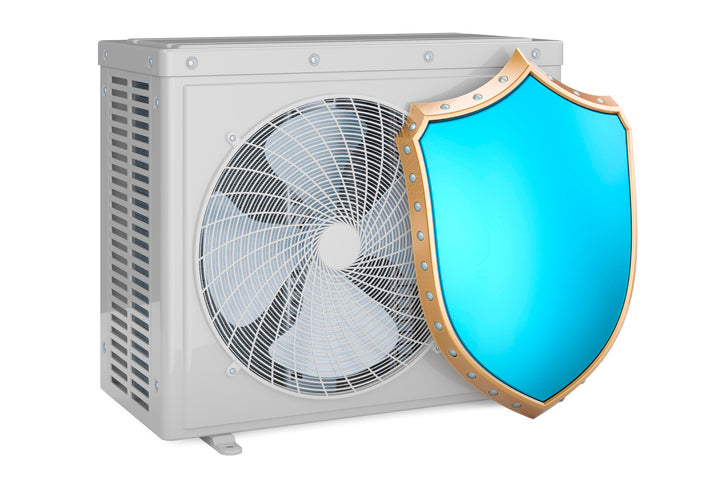How Do Mini Splits With Remote Controls Work?

During a frigid winter, bundling up in your fluffiest blanket does only so much to keep you cozy. Similarly, a glass of ice water and wearing your swimmers indoors in a sweltering summer doesn’t magically transform your home into a more pleasant space.
Indoor heating and cooling enhance your home atmosphere, making it more comfortable and enjoyable. Compared to other HVAC systems, heat pumps provide you with optimal indoor temperature controls year round, allowing you to achieve those ideal atmospheric conditions in your space. Along with comfortable temperatures, there are numerous other ways to optimize your space and comfort.
Mini splits with remote controls open up the door to more opportunities and home enhancements. They give you additional power and control. Here is how mini splits with remote controls work and how they further improve your indoor atmosphere.
The Basic Functions of a Mini Split Remote
A ceiling-mounted mini split provides you with top-down heating and cooling. Their high vantage point allows them to reach every corner of a room, maximizing their use of space and producing a more efficient heating and cooling system. It also makes them hard to reach, so you’ll need a remote.
Mini split remotes give you access to the AC unit’s control system right in the palm of your hand. They allow you to:
- Turn the unit on or off
- Adjust desired temperatures
- Set timers
- Select blowing directions
- Save energy
- Activate humidity control
Remote control mini splits provide more customizability options, allowing you to generate the best indoor atmosphere for you and bring your dream living conditions to fruition.
Benefits of Remote Control
Aside from ceiling and high-reach units, remote control compatibility works with various mini split mounts and types. Like a TV remote and screen, the two contact one another through radio signals, transferring data across short distances through a specific wavelength. As long as an AC unit can receive and decipher the signal transmissions, it is compatible with remote control.
On top of creating customizable atmospheres and being compatible with various types of mini splits, there is a range of other benefits to a remote control heating and cooling system.
Portable Accessibility
Remote controls provide you with a detached extension of your mini split. Instead of walking up to your AC, a remote lets you click and control from the comfort of your couch or across the room. It provides you with portable access to your home’s heating and cooling.
Time and Energy Efficiency
Traveling back and forth from your heat pump to adjust temperatures or power up the unit takes time and energy. A remote saves travel time and energy, allowing you to control your unit from your current location.
Concealed Placement
Being able to connect to your heating and cooling system from a distance—without face-to-face interaction—gives you more placement options. If you don’t need to reach the AC, you can place it in more concealed locations. Some AC units take up wall space or ruin the aesthetics of a room’s design. Ceiling and concealed mini splits allow you to enjoy the benefits of indoor temperature control without hindering your interior’s appearance. Remote control mini splits can be concealed within your space and give you full access to your unit.
Monitored Control
Certain temperatures feel different to different people. Snowbirds love warmer atmospheres, but what’s warm to them might be sweltering heat to others. When multiple people live in the same home, they often battle over the thermostat. Remote control access to your mini split gives you more temperature monitoring control. With units mounted high, remotes are the only access point to the controls. Anyone holding the remote holds power.
Unlike a set thermostat, remotes are portable, allowing you to take them anywhere and keep them from the hands of others. Being able to control who has access to the temperature settings solves thermostat wars and allows you to closely monitor your indoor atmosphere.
Different Types of Remote Control
Remotes come in different forms providing you with varying control access and perks. They vary in style, portability, button structure, abilities, and numerous other properties. There are three major types of mini split control systems: a standard remote, a phone app, and a SMART thermostat.
Standard Remote
A standard remote is a classic battery-operated controller that houses the basic buttons for temperature, airflow strength, and other setting controls. It provides you with the keys to change your mini split’s features and performance. The remote sends radio waves to the AC, transmitting corresponding data from the buttons selected.
Phone App
Phone app remote controls operate similarly to standard controllers. However, they use Bluetooth or Wi-Fi networks to connect. Phone apps also provide more monitoring control, giving you access to energy tracking, notifications (maintenance requests, energy usage, etc.), and more portability.
Remote control access from your phone allows you to connect to your heat pump from greater distances, even if you are away from home. It uses an online network to send information from your phone to your AC and vice versa. As long as you are connected to Wi-Fi, you can control your mini split’s settings from your phone at any location.
SMART Thermostat
SMART thermostat control systems provide the same additional customizability and monitoring control as a remote app on your phone. They also often connect to your AC unit via Wi-Fi and Bluetooth. Some even connect to your mini split through cable. The biggest difference is that SMART thermostats are stationary. They are remote from the AC unit itself but feature no portability properties.
Mini splits with remote controls operate the same as any other heat pump system. However, they give you more customizability and access control. They allow you to sit back and control your heating and cooling from the comfort of your couch, maximizing your indoor comfort.
Remote control enhances your space in numerous ways, but it mainly affects your experience with a mini split. Being able to control your AC from anywhere adds to the benefits a split system offers, from energy-efficient heating and cooling to dual functionality. It saves you time and energy, allows you to conceal your AC, and has various other bonuses. Installing a remote control mini split optimizes your space and home experience, making it a worthwhile investment and great home addition.







